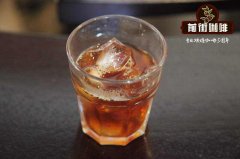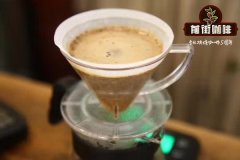How do you make Cuban coffee? how do you drink Cuban coffee?

Professional coffee knowledge exchange more coffee bean information please follow the coffee workshop (Wechat official account cafe_style)
Cuba, located in the Caribbean, is an island country under the rule of communist , and its capital is Havana. Cuba is famous not only for its snow-white beaches and cigar tobacco, but also for its excellent coffee. Cuba has a long history of growing coffee, and Jos é Antonio Gelabert introduced the first coffee factory to Cuba in 1748. In 1791, when slavery was abolished during the Haitian revolution, French colonists fled to Cuba, bringing better methods of coffee production to Cuba. Before the era of Castro, Cuba's coffee industry boomed, and coffee beans were once Cuba's number one export, with more "sugar" than life's necessities. In the mid-1950s, Cuba exported more than 20000 metric tons (22046 short tons) of coffee beans a year, all of which were sold at high prices, with most of the coffee exported to Europe, especially the Netherlands and Germany. In the late 19th century, the price of local coffee plummeted because of government policies and the chaos of the international political situation, so farmers turned to plant other crops.
In Cuba, most of the coffee beans are picked by hand. Coffee beans are picked about every half a month during the ripening period. During or after picking, coffee beans are classified and those immature and bad beans are removed to ensure the quality of the coffee. Cubans usually deal with coffee beans in two ways-tanning and washing. Tanning is the simplest, cheapest and most traditional way to treat coffee, which is to let the coffee fruit dry in the sun but not ferment. The general drying time is about four weeks. The washing rule makes the aroma of the fruit more into the coffee beans, thus adding a coarse fruit aroma to the coffee.
Cuba is like a crocodile crouching in the Caribbean, her tail brushing right on the Tropic of Cancer. Cubans have always been known for their enthusiasm, but they are very sincere and stubborn. The same is true of their coffee, which has always been carried out in accordance with Arab coffee washing standards, and they have always followed their unique traditional methods to control the roasting process very extremely. it is necessary to have a very delicious, full-bodied and slippery coffee flavor, but also to keep the coffee beans from being overroasted and causing heat.
Cuba's most famous Coffee: Cubita
Original name: Cubita, Chinese name: Amber Coffee, Origin: Crystal Mountain, Cuba
Cubita is Cuban coffee, which is mainly exported to Japan, France, Germany, Ireland, Canada and other countries. The cubita coffee entering the Chinese market is all selected from the pollution-free Crystal Mountain coffee beans in the high altitude areas of Cuba, which is a typical Caribbean coffee bean. All the particles of coffee beans are strictly selected according to the standard of sieve 17-19, and the selected coffee beans have large particles and high maturity. Cubita is all picked by hand, using water washing refining method to remove defective beans and other impurities to a large extent.
Cuban coffee (Caf é Cubano) is a variant of espresso, which is very rich and sweet. Heavily roasted beans are often mixed with sugar and coffee beans before cooking. Traditionally, coffee is filtered by cloth cones, but nowadays many stores use espresso machines directly. Unlike espresso, which adds sugar directly to a dripping cup or pot, the heat generated by Cuban coffee hydrolyzes some of the sugar, creating a sweeter and thicker state than when you drink it yourself.
Important Notice :
前街咖啡 FrontStreet Coffee has moved to new addredd:
FrontStreet Coffee Address: 315,Donghua East Road,GuangZhou
Tel:020 38364473
- Prev

Introduction of boutique coffee producing areas in Ethiopia: Bancimaji producing areas in Ethiopia
Professional coffee knowledge exchange more coffee bean information please follow the coffee workshop (Wechat official account cafe_style) [Ethiopia Sunshine] from Ethiopia Banqi Magi producing area (Ethiopia Bench Maji), located in southwest Ethiopia, is one of the two major primeval forest coffee (Forest coffee) in China, accounting for about 510% of production. The planting of coffee trees in the virgin forest
- Next

Why does Cuba have Blue Mountain Coffee? what are the characteristics of Cuban Blue Mountain Coffee?
Professional coffee knowledge exchange more coffee bean information Please follow the coffee workshop (Wechat official account cafe_style) when it first heard of Cuba's Blue Mountain Coffee, it really had the feeling of King Kong, what were you talking about? I can't hear you at all. Later, more and more people want to know about Haitian Blue Mountain Coffee. With regard to these specious statements, since we are in this industry, it seems that we should make it clear.
Related
- Beginners will see the "Coffee pull flower" guide!
- What is the difference between ice blog purified milk and ordinary milk coffee?
- Why is the Philippines the largest producer of crops in Liberia?
- For coffee extraction, should the fine powder be retained?
- How does extracted espresso fill pressed powder? How much strength does it take to press the powder?
- How to make jasmine cold extract coffee? Is the jasmine + latte good?
- Will this little toy really make the coffee taste better? How does Lily Drip affect coffee extraction?
- Will the action of slapping the filter cup also affect coffee extraction?
- What's the difference between powder-to-water ratio and powder-to-liquid ratio?
- What is the Ethiopian local species? What does it have to do with Heirloom native species?

